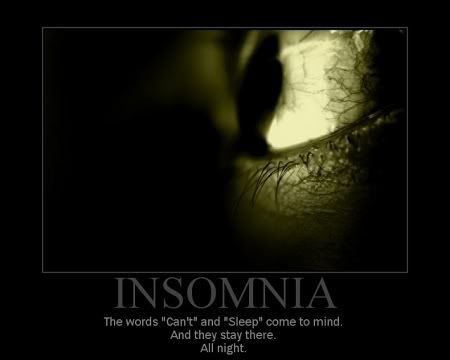
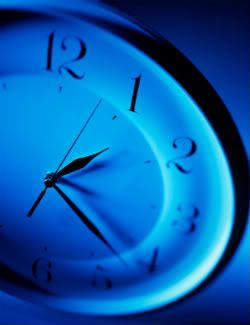 I’m not literally sleepless.
I’m not literally sleepless.
That’s not how it works, of course.
Everyone sleeps.
Eventually, anyway.
I’ve been meaning to write a diary about insomnia, but I had intended to do it first from a clinical perspective for the Mental Health Awareness group. I thought a personal account might be interesting to some, though, as a primer of sorts – or for a strange-ish perspective.
Insomnia is “common,” but mine is not. My insomnia was diagnosed long before any of my other issues – that’s because it is a rather rare form of insomnia. It has been present since I was an infant and a part of my reality for as long as I can recall. It is called idiopathic insomnia, seemingly to reflect the fact that it has no known cause, and is found in less than one percent of the population.
A brief overview:
Idiopathic insomnia is a rare form of chronic insomnia that contains no visible signs of its cause. It is a life-long syndrome that seems to present upon birth, and is theorized as being the result of an underactive sleep system, or overactive awakening system, but no verifiably true origin or cause of the disorder is known.
It is known that idiopathic insomnia exists without the detectable presence of other sleeping disorders, medical problems, medication or substance use or abuse, any underlying behavioural problems that could cause poor or unfulfilling sleep, and any psychiatric disorders. It is also not the result of poor sleep hygiene. Idiopathic insomnia often occurs nightly, and may include short sleeping times, numerous nighttime awakenings that cannot be explained, and difficulty falling asleep even when the body feels sufficiently tired to do so. This all happens without the presence of any stress that may cause a similar scenario in others, no psychological or neurological disorders, and no medication or substance use.
As the disorder starts at an early age, often as an infant, most people suffering idiopathic insomnia will have adjusted to it, and few show signs that the disorder is having a severe detrimental effect on their lives. They often do not develop any medical or social problems as a result of the disorder.
In some cases, people with this disorder will try to correct the problem on their own without success, and may oftentimes make it worse or develop other sleeping disorders as a result. This includes consumption of medications or alcohol to help with sleep, or developing other poor sleep hygiene habits.
American Sleep Association, emphasis added

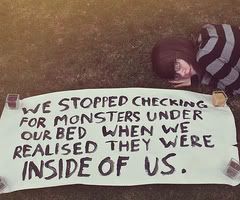 I have only met one other person who has it, and his experience with it has been pretty much the same as mine. In fact, I met him on MyDD during the 2008 primaries, and we got to know each other by commenting back and forth on long sleepless nights. Some of you may know him, and… okay, okay. Yeah, it’s Kysen! But he’s lived with this problem for more years than I have, and he can relate to most of what I am saying.
I have only met one other person who has it, and his experience with it has been pretty much the same as mine. In fact, I met him on MyDD during the 2008 primaries, and we got to know each other by commenting back and forth on long sleepless nights. Some of you may know him, and… okay, okay. Yeah, it’s Kysen! But he’s lived with this problem for more years than I have, and he can relate to most of what I am saying.
Most of the rest of the world – normal people – we call them “sleepers.” If you haven’t lived as an insomniac for your entire life, you have no idea how amazing people like us think sleepers are. I’ll see my loved ones sleep 8…. 9… 10 peaceful hours with ease, and it seems like a magic trick. I feel a lot of jealousy at times for people who can escape into sleep for hours and hours. I also get lonely sometimes while they sleep. I hate to be in a room with sleeping people, and my loved ones know that and try not to doze off around me. Watching a sleeping person causes a lonely, isolated feeling to wash over me, and once people start dozing after a meal or during “naptime,” I tend to wander away. My cats are the one exception – they are allowed to sleep around me.
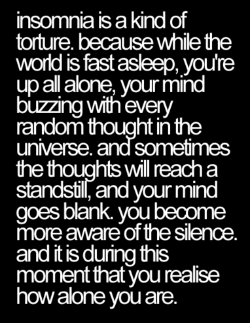
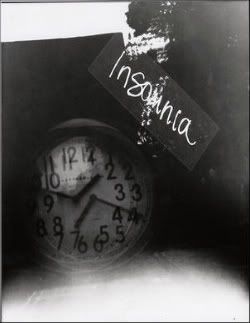
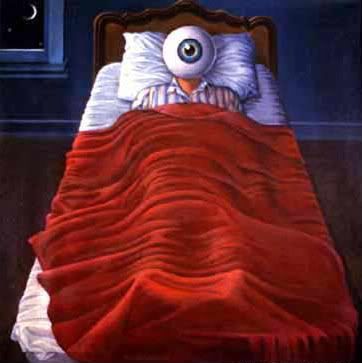 I’ve come up with a million ways to occupy my time at night because – with the exception of a few years when I was younger and ran with a nocturnal crowd – I have always been alone at night. Books, TV, video games, music, the computer, my kicks, the 24 hour gym/clubhouse, my journal, a sketchpad, the night air and the moon and the stars… these things (and many others) are my friends because they keep me company and always have. The internet makes things easier because there’s always someone awake. I have several online friends from Europe and the Middle East, who keep me company when no one else is about.
I’ve come up with a million ways to occupy my time at night because – with the exception of a few years when I was younger and ran with a nocturnal crowd – I have always been alone at night. Books, TV, video games, music, the computer, my kicks, the 24 hour gym/clubhouse, my journal, a sketchpad, the night air and the moon and the stars… these things (and many others) are my friends because they keep me company and always have. The internet makes things easier because there’s always someone awake. I have several online friends from Europe and the Middle East, who keep me company when no one else is about.
To compound the problem, I am a “nocturnal” person. I sleep best between the hours of 6 and 9 AM – a sure problem for anyone who wants to work a typical day job. Kysen and I call the times during which we can sleep our “windows.” They open and close seemingly at random sometimes, but for me they are far more frequently open during the day. For the internship I am currently working on, I have to be up and awake and moving for the day by 5:30 or 6:00 AM, so it has been a strain for me to readjust my sleeping times. Often I’ll catch a nap in the afternoons after I get home because it’s easier then.
The place I get sleepy the most often is, unfortunately, my car. I have to be very careful when driving on little sleep. Of course, the average person would say I live my entire life on very little sleep. I consider 2-3 straight hours of sleep a night to be excellent. Often I sleep less than this, or the sleep is broken up and snatched whenever I can get it throughout the day. The reason I like to sleep in the car goes back to my childhood. When I was an infant – and really, for years in my early life – my parents noticed that I would not sleep. They didn’t understand it, and the pediatrician didn’t either. They had noticed, however, from toting me around to and fro in the car, that I seemed to sleep better in the car than most places. Maybe the vibrations lulled me? Whatever the reason, they picked up on it and began driving me around the neighborhood at night to put me to sleep. This worked better than anything else, and though I was still up for most of the night off and on, it gave them a modicum of peace.
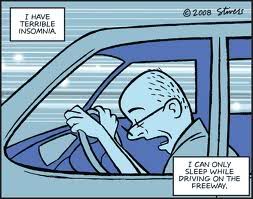 As a child, I had no bedtime beyond the age of 4 or 5, when my parents finally gave up. They made a deal with me early on – I was to stay out of trouble, stay in the house, and get ready for school in the mornings on time whether I’d slept or not. So long as those rules were obeyed, I could sleep – or not sleep – whenever I felt like it. It worked out pretty well, though it caused my younger brother some angst once he was old enough to realize I was allowed to go to bed whenever I wanted and he never would be. That’s another thing about this type of insomnia: It does not appear to “run in families,” and no one else in my family history has had this problem, so far as we are aware.
As a child, I had no bedtime beyond the age of 4 or 5, when my parents finally gave up. They made a deal with me early on – I was to stay out of trouble, stay in the house, and get ready for school in the mornings on time whether I’d slept or not. So long as those rules were obeyed, I could sleep – or not sleep – whenever I felt like it. It worked out pretty well, though it caused my younger brother some angst once he was old enough to realize I was allowed to go to bed whenever I wanted and he never would be. That’s another thing about this type of insomnia: It does not appear to “run in families,” and no one else in my family history has had this problem, so far as we are aware.
There are some advantages. I can get a lot done when I need to, which means I can indulge my natural tendency to procrastinate (far more than I should). When crunch time rolls around, I function better than most people around me because I can get twice the work done on less than half the sleep. Oddly enough, as
jealous as I am of sleepers, I have known quite a few to be jealous of me, as if not being able to sleep is some kind of “gift.” It really isn’t. You know that feeling you get sometimes when you’re “too tired to sleep”? I get that fairly often, though not as often as I once did. But still, I’m tired a lot of the time. You wouldn’t know it to look at me in public because I’m very cheerful and upbeat, but the people I love know how tired I get sometimes. They see it when I let my guard down.
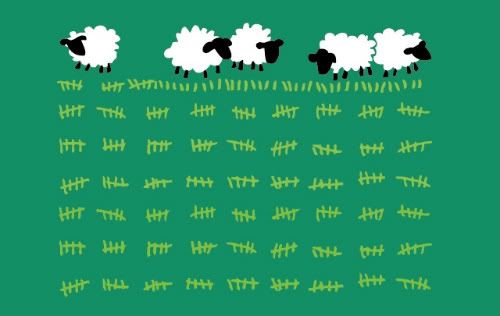
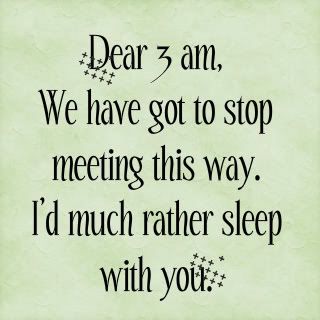 I’m currently on some medication that makes it more difficult for me to go days on end without sleep, but there have been times in my life when my insomnia has interacted with another condition of mine and caused me to remain sleepless for days – sleepless until little black spots moved in my peripheral vision and noises seemed insanely loud and everything made me jump and twitch. Currently I’m on meds which pretty much demand that I sleep nightly, even if only for half an hour. Well, I shouldn’t say “sleep nightly.” With chronic insomnia, days and nights blur together – sometimes everything seems like one long day or night, because my time is never separated by a full “healthy” 8 hours of sleep.
I’m currently on some medication that makes it more difficult for me to go days on end without sleep, but there have been times in my life when my insomnia has interacted with another condition of mine and caused me to remain sleepless for days – sleepless until little black spots moved in my peripheral vision and noises seemed insanely loud and everything made me jump and twitch. Currently I’m on meds which pretty much demand that I sleep nightly, even if only for half an hour. Well, I shouldn’t say “sleep nightly.” With chronic insomnia, days and nights blur together – sometimes everything seems like one long day or night, because my time is never separated by a full “healthy” 8 hours of sleep.
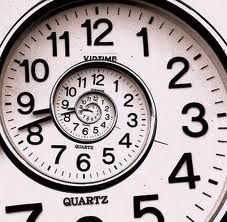 Of late, however, another of my mental health issues has been interacting strangely with my insomnia, and I seem to be sleeping more. Sometimes as much as 4 or 5 hours broken up throughout the day. This has happened before, and it means I’m in a “funk” of sorts, but I trust that it will pass. The problem with sleeping so much is that it’s not restful sleep. I don’t wake up feeling much better than I do after half an hour of rest, and often worse. Under normal circumstances, half an hour is a very tolerable nap which can get me through most of my day.
Of late, however, another of my mental health issues has been interacting strangely with my insomnia, and I seem to be sleeping more. Sometimes as much as 4 or 5 hours broken up throughout the day. This has happened before, and it means I’m in a “funk” of sorts, but I trust that it will pass. The problem with sleeping so much is that it’s not restful sleep. I don’t wake up feeling much better than I do after half an hour of rest, and often worse. Under normal circumstances, half an hour is a very tolerable nap which can get me through most of my day.
But things will go back to normal – normal for me, that is – and be better soon. I really function remarkably well. As Kysen says… “The mind adjusts.” So does the body. We have never known anything else, and we have adjusted pretty well to it. We didn’t really have a choice.
Now I know that some of you are probably thinking there are things I could do to be sleeping better, and I’ve heard near every suggestion – from friends, acquaintances, doctors… Really, nothing helps in the long run. People say, “Don’t drink coffee or tea, have a nightcap, take sleeping pills, try this herbal supplement I found, take melatonin, deprive yourself of sleep for 3 days and get your sleep cycle in balance!” Some of you may have other suggestions, and I’m not saying I’m not relatively “open” to trying new things – I’m just saying that after 25 years of insomnia, I’m not expecting a breakthrough anytime soon.
I am home with allergy-induced sickness today.
And unfortunately, I didn’t sleep last night.
How did the rest of the world sleep?
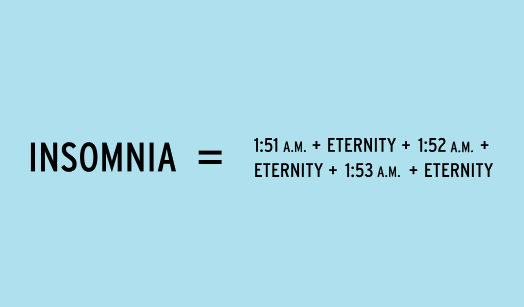
33 comments